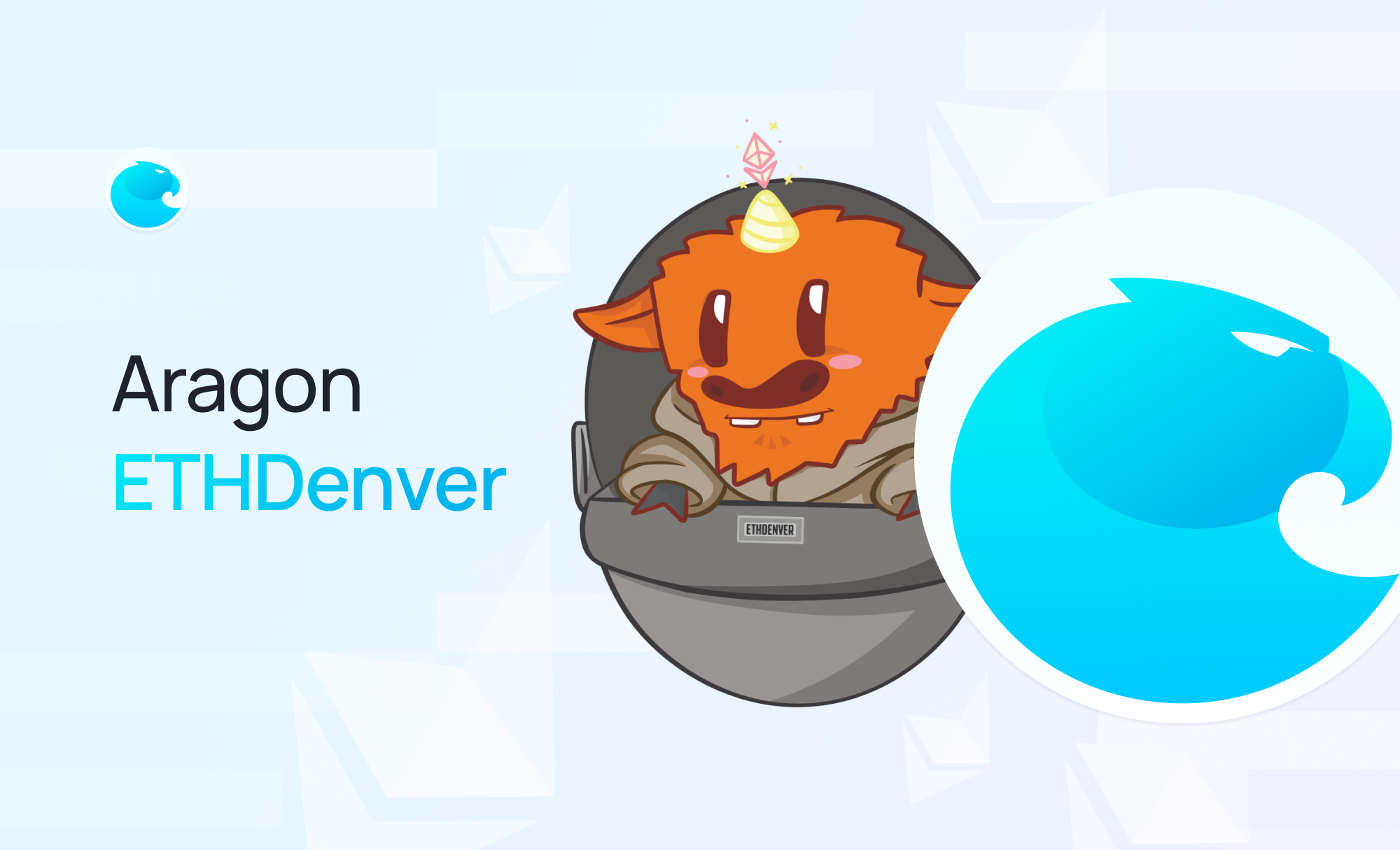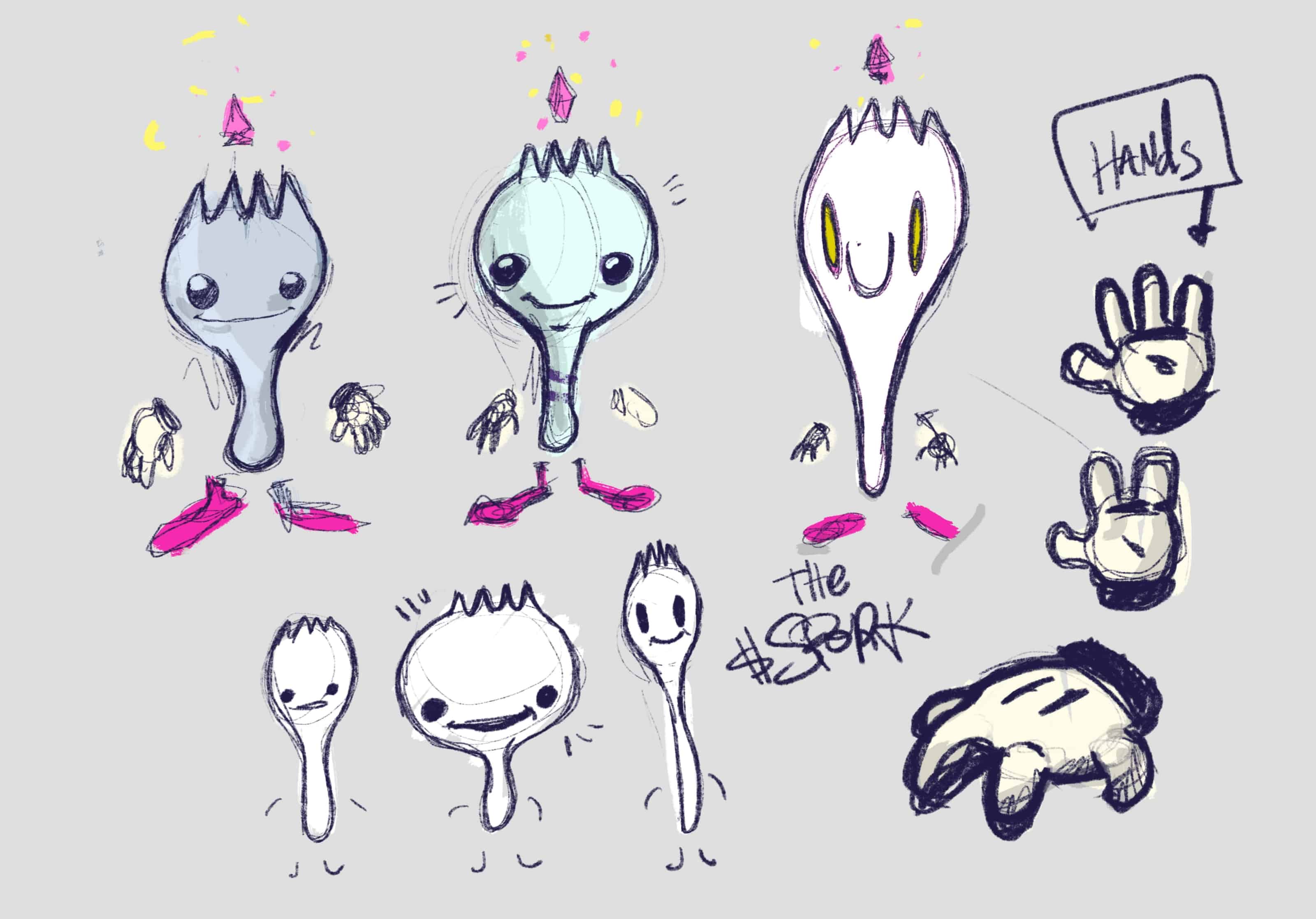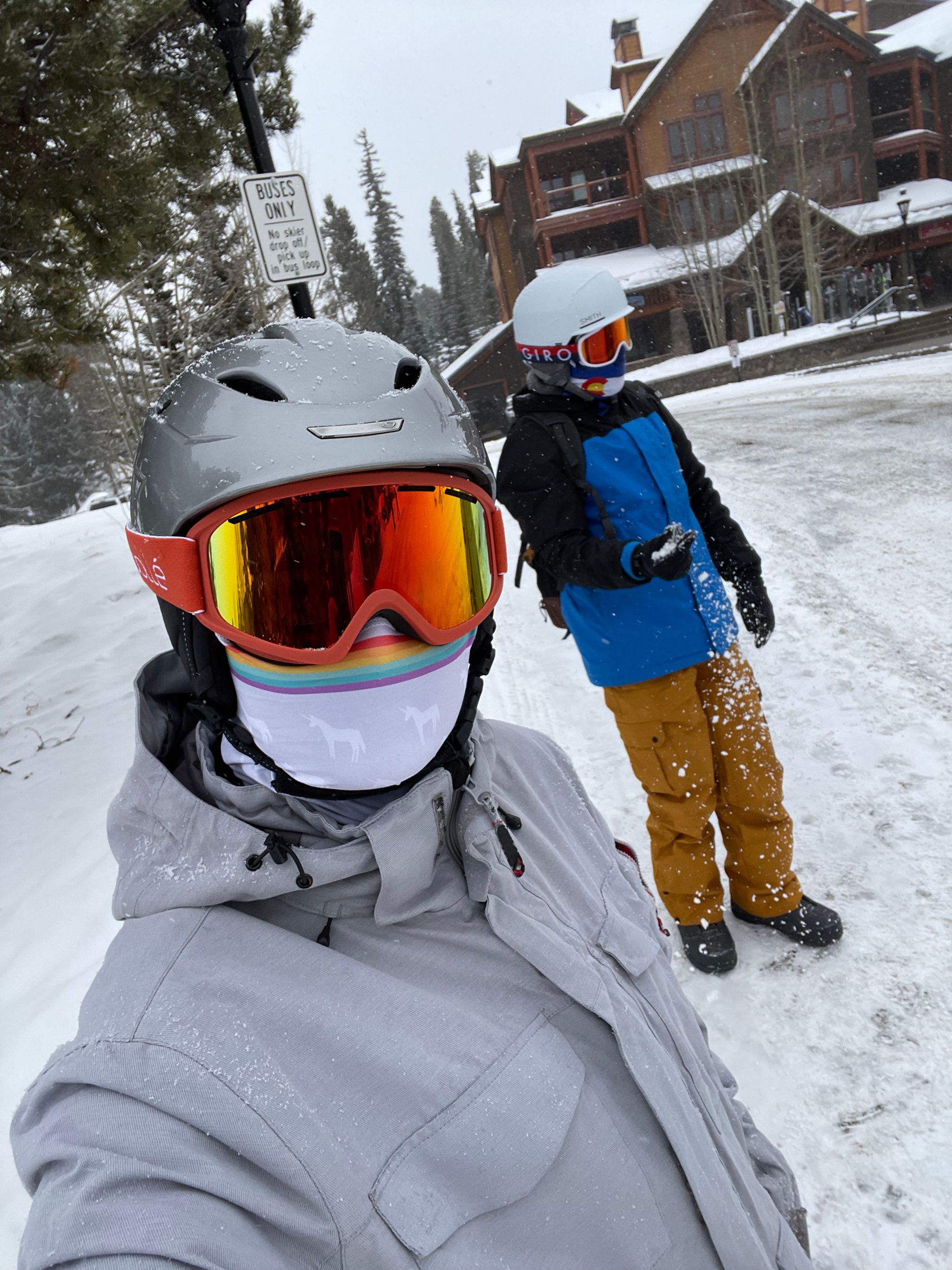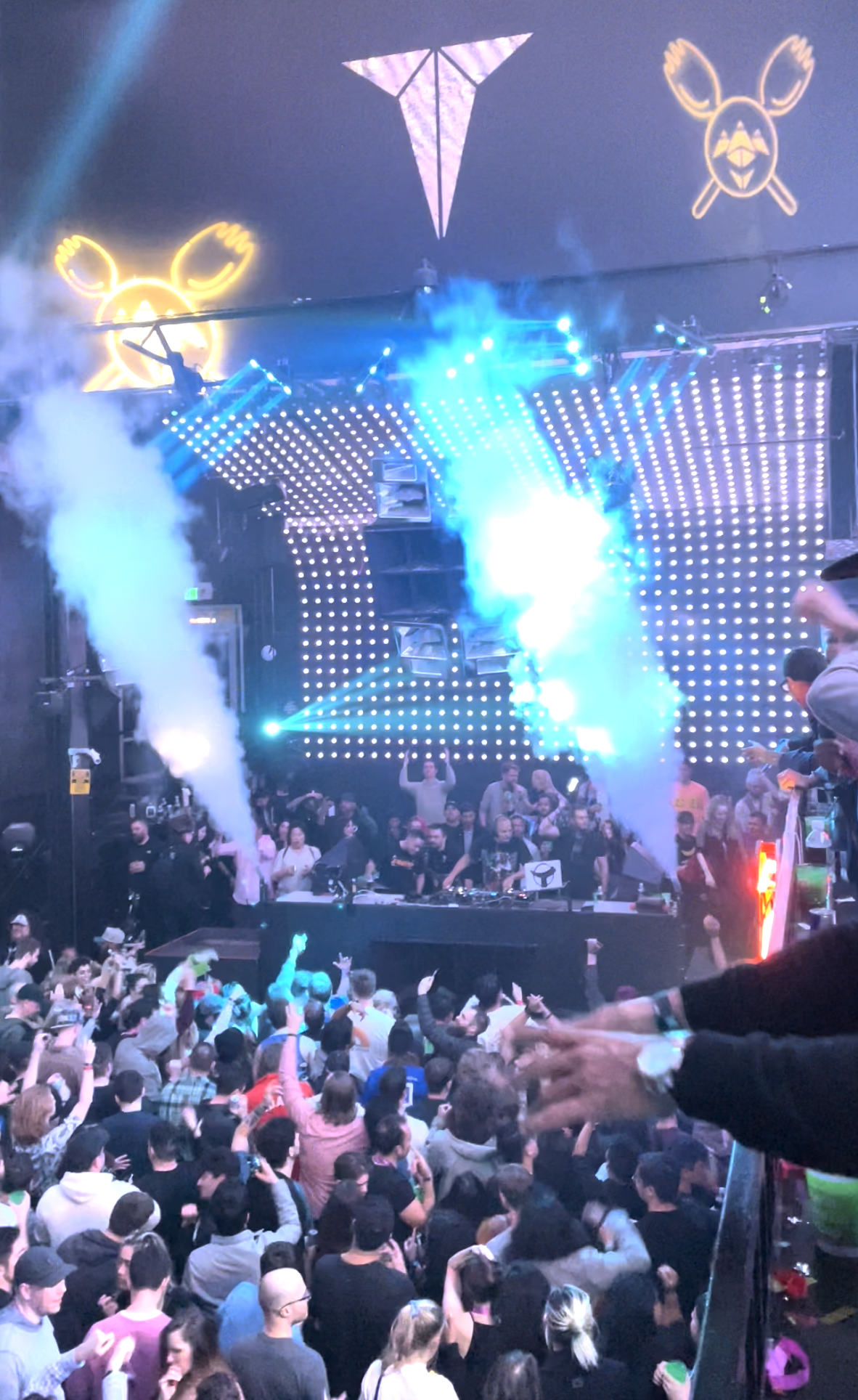Aragon @ ETHDenver
Snow sporks...
Aragon

ETHDenver has a thing for cutlery, especially the spoon / fork combination affectionately know as the Spork. Perhaps it’s the altitude, but, if you’ve ever used one you’d give them the benefit of the doubt because:
A Spork is the most utilitarian instrument in the known world. It can be used to eat, dig, attack, defend, and, mostly notably, #BUIDL. - SporkDAO

The spork represents the defiant, pragmatic triumphs of problem-solvers everywhere and is, therefore, a fitting mascot for the Ethereum community who descended on Denver in their thousands.
ETHDenver is the longest running Ethereum event globally and emphasizes pitching, building and collaborating more than any other event in the Ethereum calendar. 28k people applied to attend and 12k made it to the foot of the Rockys to share their insights and build out the web3 economy. We were honored to be there, so here are a few of our hot takes on ETHDenver 2022:
1. DAOs are Growing Up
After a few breakout success stories, DAO builders are grappling with the next stage: transitioning from naïve idealism to functional pragmatism. DAOs will, hopefully, always be about big ideas, but there’s still a notable lack of detailed methods for turning these ideas into reality. Away from the lecterns, the conversations in Denver echoed a more thoughtful approach to building: instead of “Just DAO it!”, many attendees were talking about “going slow”, “thinking carefully first”, and “being thoughtful”. Whisper it, but there were signs of a healthy skepticism in Denver that is pushing back against youthful idealism and asking for obvious demonstrations of value, easy-to-digest concepts and clear roadmaps that can bridge the gap to mass adoption, in addition to the user-friendly, scalable DAO tooling that seasoned DAOists always need.
We also found that DAO folks this year were much more likely to be ‘regens’ than ‘degens’, having been through their speculation phase and now focusing on creating real social value. Of course, this observation is skewed by the nature of ETHDenver, especially being sponsored by GitCoin and with a heavy emphasis on ImpactDAOs and Taking the Green Pill from Kevin Owocki (who coined the term ‘regen’):
Despite all the positives, it was disappointing that there were still way too few women at ETHDenver and even those who did attend were more likely to be working for the exhibitors than visiting for their own sake. There's still a lot of work that needs to be done here. Likewise for diversity: most ethnicities are very poorly represented in crypto - despite being some of its heaviest users - and this was reflected in Denver.
Back to the future though, in our latest research on What DAO Builders Need and Who will Build the Next 10,000 DAOs?, we’ve been focusing on this question of how the space is growing and who will be building the next 10,000 DAOs. Aragon’s Juliette Chevalier dropped the alpha:
2. DAO Architecture is Changing
Given DAOs’ permissionless, lateral structures, you might be surprised to learn that the word ‘hierarchy’ is reappearing in the DAO vocabulary. We especially heard a lot of love for subDAO and ‘pod’ structures as a better way of structuring DAOs. This is a hot-button topic within crypto, so to clarify the approach that we all should be taking, Julia Rosenberg from Orca reinforced the distinction between the decentralization of tech, which shouldn’t be compromised, and the decentralization of labor, which doesn’t need to be absolute.
Voting mechanisms are also getting an overhaul, moving away from ‘everyone voting on everything’ to delegation. In the above video, FrogMonkee introduces the topic of ‘constrained delegation’, where defined ‘decision spaces’ are created in the form of pods or sub-DAOs, which are then delegated to by token holders who may revoke their delegation at any time as a deterrent to their votes being misused. In short, “One-token-one-vote won’t cut it.”
After announcing that they have now opened up their DAO-to-DAO (D2D) liquidity pools to everyone, Balancer gave an excellent presentation on D2D relationships and how they evolve from technical alignment to financial alignment (liquidity pools, tokens swaps, etc) and then social alignment:
3. Innovation is not Slowing Down
If you’re hoping for a break from NFT-mania in 2022, get ready to be disappointed because everyone was talking about NFTs in Denver - either about the art they were designing, how they are integrating the technology into an untapped field, or using them to organize a project's treasury and coordinate.
In fact, there were no signs of any moderation of the pace of innovation at ETHDenver: Lots of people are excited about the potential of Celestia: a lightweight chain that enables data availability with off-chain state execution; Coordinape announced that they are creating their own version of DeWork, which is currently in beta; Bankless have built a sunset clause of 90 days into any governance changes to encourage more experimentation; and Tally demonstrated their solution for DAO proposals with on-chain execution:
4. Mo’ Money
Another insight we gained is that the ecosystem is currently flooded with available capital. This is great for the ecosystem, but it has a few consequences:
- We're living through a golden time where investors are pivoting their strategies towards crypto projects, but when the money comes from traditional corporate investors it can lead to tensions within decentralized organizations where the culture, expectations and power structures are very different from web2 organizations.
- Investors are getting used to - and now expecting - quick returns because they can usually unlock profits from tokens more easily than they can from shares. This compresses the average investor’s time horizon from 7-8 years to 12 months. It’s unclear whether this is healthy and consistent with the general trajectory of crypto or whether it will put unrealistic demands on projects that need time to find product-market fit. Either way, it could inadvertently lead to an unhealthy high time-preference culture.
- Having so much money in the ecosystem inevitably leads to less discerning investments. This opens the door for lower quality projects to flood the user experience of DAOs as they have, arguably, with NFTs. To a certain extent, this is normal and to be expected in any tech gold-rush, but we hope the situation will improve without the aid of a bear market. That said, we’re excited that Messari are ramping up investment in their Governor product with an ambition to become the default front-end for DAO contributors and that DAOhaus will proceed with their next funding round.

5. WAOTRT (We Are On The Right Track)
Overall, taking into account everything that we’ve seen and heard here in Denver, we’re not shy to admit that we think we’re on the right track in a few different areas ☺️...
Our research has suggested that we should be focusing on the ‘intermediate builders’ who are not DAO experts, but are already participating in DAOs and understand their potential. We have also identified simplicity, modularity and adaptability as the core design principles to adhere to as we build the next iteration of Aragon. None of the conversations we had at ETHDenver contradicted those findings and the same pain points that we recognize are being discussed and shared by the whole ecosystem.
Another area where we’re excited to add value to the ecosystem is in the implementation of end-to-end anonymous voting. We have been focusing on the primary benefits of ballot obfuscation and coercion resistance, but in Denver Bankless identified the ‘cost of saying no’ problem within their DAO, which could be an additional application for our anonymous voting technology. The core of the issue is that no-one wants to offend anyone else by voting against a proposal, and there is no personal cost to voting in favor. The result is that all proposals tend to pass without scrutiny. Anonymous voting would eliminate the initial fear of offense and so strengthen the democracy of the DAO.
Aragon’s Head of Ecosystem, Ivan, has been spearheading our community initiatives and collaborative strategy. He represented Aragon on the DAOStar One panel at Schelling Point to talk about the definition of a DAO, interoperability, and the promise of an ERC for DAOs:
Aside from these wins, there are areas where we might need to rethink our strategies. For example, considering Messari’s commitment to Governor, to what extent should we effectively outsource our front end development? Likewise, will Top.gg be comprehensive enough as a DAO aggregator to make our own ‘Explore’ page redundant? The composability of web3 and DAO tooling turns every team into potential partners and every tool into a potential integration. The landscape is constantly shifting beneath us and everyone else in the space.
Finally, a huge thanks to everyone who presented and connected with us at ETHDenver. The metaverse is fun, but you irl guys rock.

--
Aragon is building the future of decentralized governance for Web3 communities & organizations. Deploy a DAO on Aragon Client or Aragon Govern, manage your community on Aragon Voice, resolve disputes in Aragon Court and run enterprise-level votes on Vocdoni, all within our open-source stack. See the latest at aragon.org, subscribe to our monthly newsletter, join the conversation on Discord, or follow us on Twitter.
Docs | YouTube | Telegram | Github | Reddit | Linkedin | Forum
Subscribe to The Eagle for weekly news on the Aragon Network
